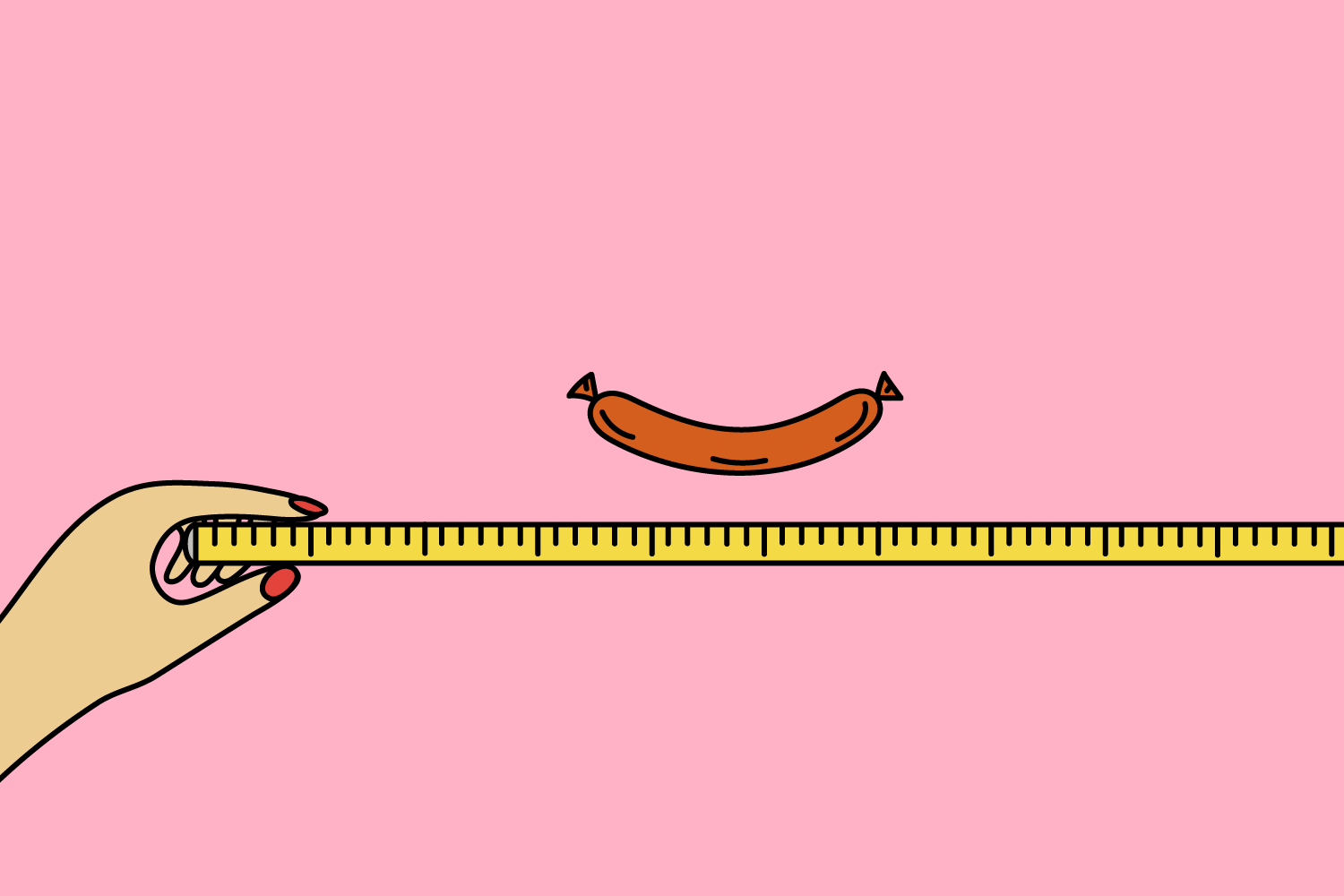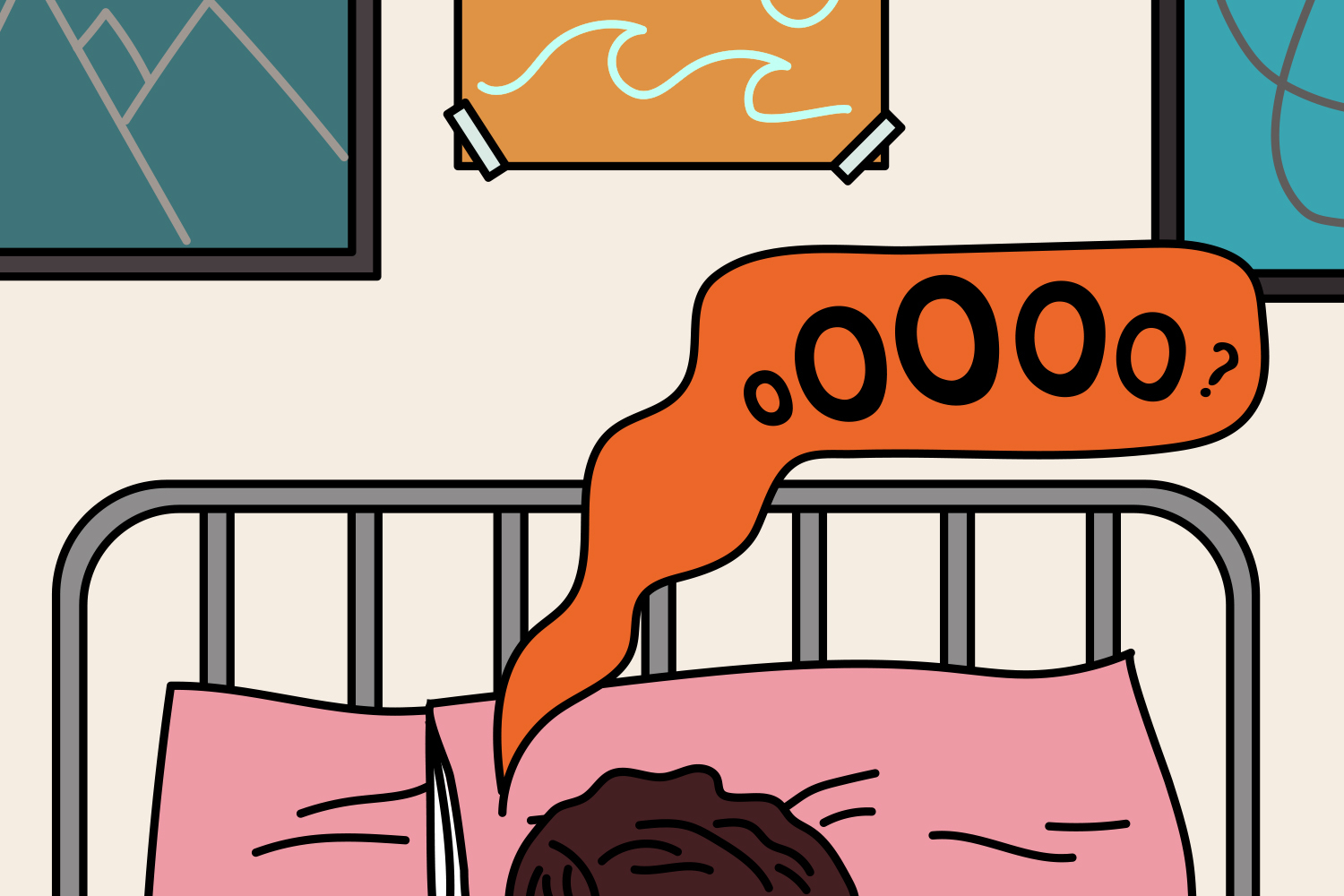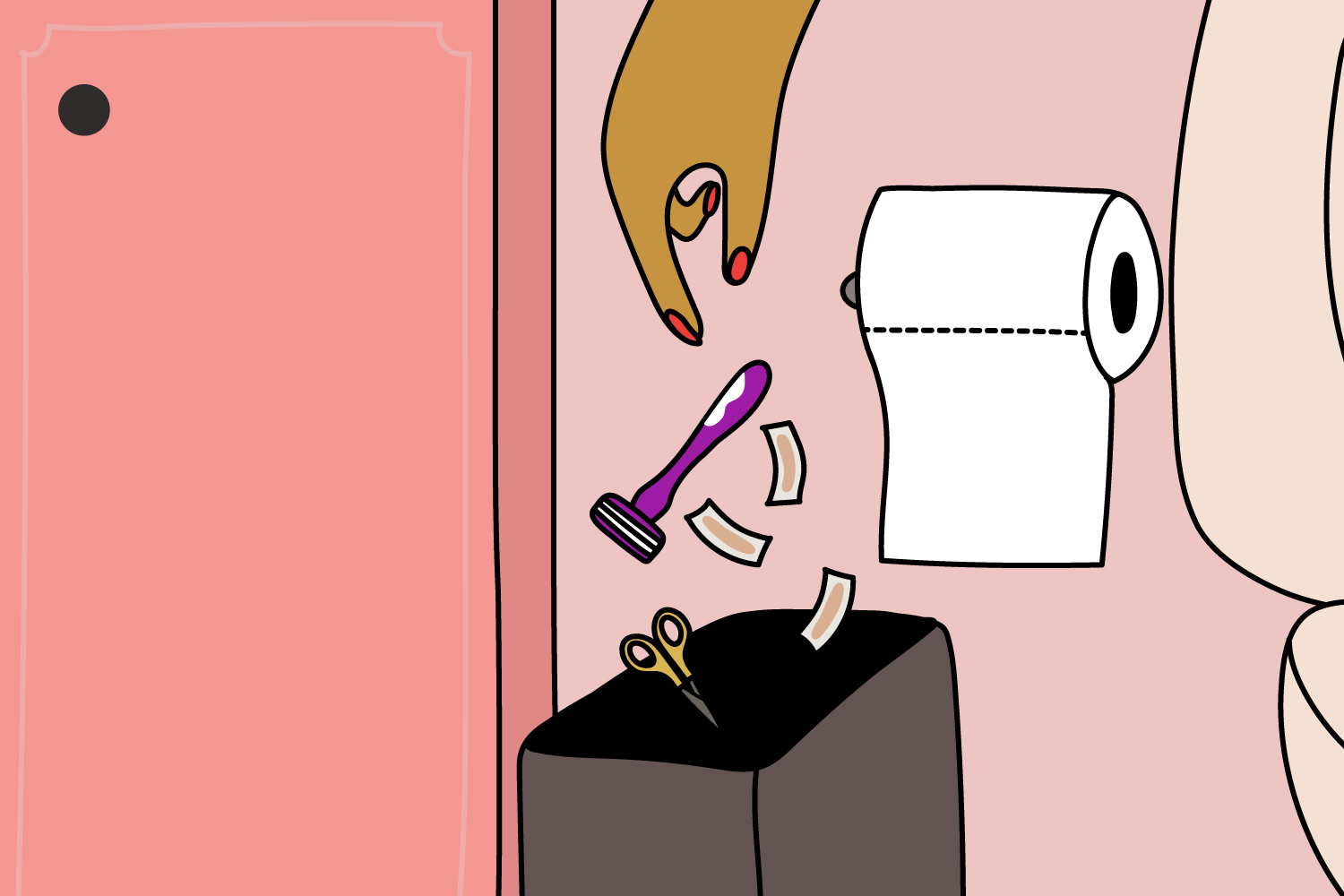As we have previously established — on multiple occasions — existing in a body is a prison into which we are born and from which we will only be released upon our deaths, when that prison itself, the one that has housed and fed and defended us all our lives, turns against us.
Before our bodies ultimately destroy us, however, they can provide some pretty profound experiences. Sex can be one of them. On many levels, sex is all about bodies — about connecting with another human being in one of the closest physical ways the laws of nature allow. Sometimes, that translates to a feeling of deep connectedness with oneself and one’s body, and/or that of a partner. Other times, it can be an experience which, while accessed through the physical, seems to transcend it altogether. But whether you’re connecting with your physicality, transcending it or something in between, sex is always, on some core level, about bodies.
This means that sex can bring up a lot of insecurities about those bodies, because, as if existing in a skin suit that will one day be the instrument of our demise weren’t already traumatic enough, we also went out of our way to assign a huge amount of cultural capital and personal value to those bodies’ ability to conform to ultimately arbitrary shapes and sizes that have been crowned the societal ideal. Meanwhile, it goes without saying that women are often under even more intense pressure to satisfy those ideals than, say, their male sex partners.
But if sex is all about bodies, it’s only natural that you’d want to comment on your partners’. Unfortunately, doing so can often be triggering, uncomfortable or even offensive — even if you mean your comment in the most complimentary way. Having a body is an extremely complicated thing. Our bodies hold, reflect and are sometimes the root of a lifetime of personal trauma, which a seemingly innocuous or even flattering comment can unknowingly prod or resurrect.
In order to avoid stoking the flames of that trauma during what should be a fun, romantic, profound or simply carefree encounter, here are a few things you might not want to comment on while in bed with a woman.
Weight gain
It seems like this should go without saying, but if a woman you’re sleeping with has gained weight, it’s probably best not to bring it up!
Situations in which this may seem less obvious, however, include when you mean this as a compliment. As a woman with a long history of disordered eating, I’ve had various men take it upon themselves to inform me that they actually prefer not being able to count every bone in my ribcage. A lot of times I’ll get a, “You look so much healthier,” when I’m up a few pounds. I know this is probably sincere and meant as a compliment — sometimes it’s even handed down by men who are aware of my history, who no doubt think they’re making a positive contribution toward rewriting the toxic societal script that has long informed my fractured relationship with my body.
Unfortunately, I don’t want to hear it. Even if I like how I look, I don’t want to hear “healthy.” I don’t want to hear it from my mother when she’s relieved she can hug me without making contact with a Stegosaurus spine, and I don’t want to hear it from men who prefer not to be stabbed by protruding hip bones during sex. All I hear when someone says, “You look so much healthier,” is: “You’ve gained weight and it’s noticeable.” History of disordered eating or not, no one wants to hear that, especially not in bed.
Weight loss
Sure, you know you shouldn’t comment on weight gain, because society has conditioned us to believe that gaining weight is the absolute worst thing that could possibly befall a human being — especially a female one. But that means we’ve also been conditioned to believe that losing weight is the very best thing a person can do — besides remaining dutifully, unwaveringly thin from the moment of birth, of course.
Naturally, then, we’re compelled to praise weight loss, whether the loser of any given amount of body weight is our aunt, uncle, cousin, mother, brother, friend, co-worker or sex partner. And here’s where it gets tricky: many people, especially those who have actively been working to lose weight, genuinely want to hear this kind of praise. Some people might find those comments motivating, and there’s nothing wrong with that. But unless you know — on very clear terms that have been communicated with a given person directly — that someone wants to receive positive comments about their weight loss, it’s best to avoid bringing it up, especially if that person is someone you’re sleeping with.
You never know what kind of history someone has with food and their body. Even if they’ve opened up to you about it, you still can never truly know how individual comments or circumstances might affect them, because a lot of times that person might not even know, themselves. Praising weight loss can contribute to or reinforce disordered eating behaviors, and even someone who doesn’t have a history of food issues might interpret a well-meaning weight-loss compliment as an insult to their previous body size.
Unless you know, on no uncertain terms, that someone wants to receive praise for their weight loss, it’s best to avoid bringing it up at all. And even if you do, it’s probably a conversation best left out of the bedroom.
Pubic hair
Most people have a preference when it comes to pubes and what to do with them, whether their own pubes or a partner’s. You say full bush, I say full Brazilian. While everyone is entitled to their preference, however, no one has a right to enforce that preference on a partner, and attempting to do so, however subtly, makes you look like kind of a jerk.
Back when I was 17, after dutifully stripping myself as bare as I could get with whatever overused disposable razor most 17-year-olds have available in preparation to fool around with a fellow 17-year-old in the back of his mother’s car, that 17-year-old said, “Can you try to shave better next time?” To this day, that is the only thing I remember about him, but I still think about it every single time I have sex in between waxes. Don’t let that be your legacy.
Obviously, this person was basically a child at the time, so I’m willing to cut him some slack. But if you have a problem with a partner’s current pubic grooming situation, remember: that’s your problem, not theirs. You’re entitled to your preferences, whether hairier or less hairy than whatever you’ve been presented with, but the onus is not on your partner to conform to those preferences.
Labia size/shape
I’m well aware that genitalia is probably one of very few areas in which men are under more intense pressure to conform to certain aesthetic standards than women. That said, society has its own set of aesthetic ideals when it comes to female genitals as well. Surprise, surprise, those ideals prioritize smallness. Our vaginas are supposed to be tighter than the fist of Ebenezer Scrooge, our external labia little more than a paper cut slit down our vulvas and our internal labia imperceptible. We’re all familiar with all the nasty words for vaginas that don’t happen to meet this description — we’ve been hearing them on TV and from peers since middle school, we don’t need or want to hear them from our sex partners.
That said, you probably know you shouldn’t say something blatantly offensive about what a sex partner is packing below the belt. But even if you mean to compliment us, it’s difficult to divorce those comments from the societal narrative that surrounds those aesthetic ideals, whether our genitals meet them or not. If you compliment my vagina, I assume you’re either praising me for conforming to those beauty standards, which makes me feel like we’re both complicit in reinforcing them, or flaunting your affinity for less-than-societally-ideal vulvas as some kind of good-guy badge. As any penis-haver knows, the pressure to possess a certain size or shape of genitals is immense. These narratives loom large, and even seemingly complimentary comments can trigger insecurities or other negative feelings. When it comes to praising a partner’s genitals, it’s best to stick to non-verbal displays of your affinity.
Scars
I am a person with self-harm scars. Mine are on my hips, which means they are usually only visible to other people when I am either wearing a bathing suit or getting naked in front of someone. The intimate nature of the latter situation sometimes leads those partners who notice (and know what they’re looking at) to assume they have a right to ask me about it — some have even expressed the belief that they have a “duty” to do so out of concern for my mental wellbeing. Spoiler alert: they have neither! Just because someone consents to letting you see their body does not mean they consent to being interrogated about it, particularly when that interrogation involves intense, emotionally fraught details about their personal life they haven’t yet chosen to share with you.
Even scars that aren’t self-inflicted can often have origins in traumatic life events that a person might not be interested in discussing — particularly not in bed — and scars that may not be linked to any emotional trauma might still be a source of insecurity. Unless your partner brings it up, don’t mention it. Our bodies tell stories, yes, but access to those bodies doesn’t grant you a right to know their stories.
The Charge will help you move better, think clearer and stay in the game longer. Subscribe to our wellness newsletter today.



























